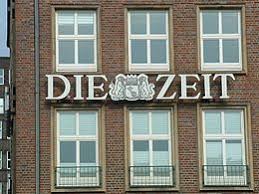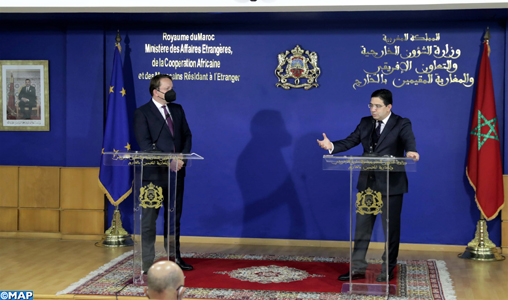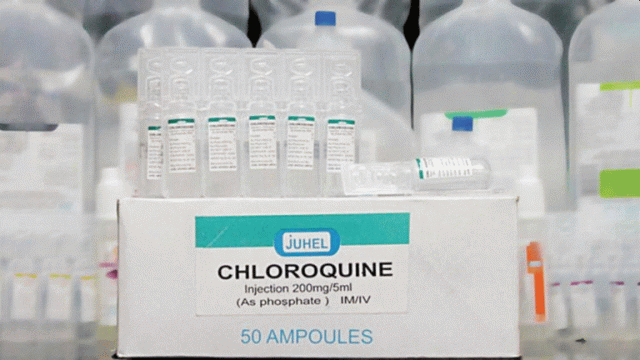 Morocco’s impressive management of the coronavirus health crisis, which stands as a model, in the view of several observers, is still attracting the attention of international media.
Morocco’s impressive management of the coronavirus health crisis, which stands as a model, in the view of several observers, is still attracting the attention of international media.
The strategy adopted by Morocco to fight the COVID-19 pandemic is based on containment, high technology and financial support for the most needy, German weekly Die Zeit commented in this vein.
The German weekly highlighted the invention by a team of Moroccan researchers of an intelligent mask for automatic remote detection of the Covid-19, called MIDAD. The mask is supplemented by an application (Trackorona) that enables to predict and diagnose the disease.
The mask, which will soon be presented by the Moroccan government, could represent part of a digital solution for an entire country, the weekly stated.
“Morocco cannot conduct massive testing like you do in Germany. Thus, we need alternative solutions,” the coordinator of the scientific team, Dr. Mouhsine Lakhdissi, told Die Zeit.
The German weekly recalled that MIDAD is one of six projects selected in an international competition called “HakingCovid19” organized by l’École des Hautes Etudes Commerciales de Paris (HEC Paris). Discussions are underway with investors to finance the manufacture of this mask on a large scale.
According to the Moroccan research team, the mask has innovative technology for detecting COVID-19 symptoms like fever and dry cough and can transmit health data to health authorities via smartphones and Bluetooth, noted Die Zeit.
MIDAD is the success story that adds to Morocco’s efforts in the fight against the pandemic of the new coronavirus, stated the German publication, adding that the Kingdom was one of the first countries to impose the most strict containment.
The weekly also recalled the setting up, at the initiative of King Mohammed VI, of a special coronavirus management fund that collected over €3 billion thanks to the contributions of the Sovereign, government officials, enterprises, banks, and businesspersons.
Part of the protective measures it adopted, Morocco imposed the compulsory wearing of masks, Die Zeit stated, noting that the price of the masks is subsidized and that the masks are available across the various regions of the Kingdom. Besides, in just a few weeks, Morocco has become a supplier of masks.
The figures support Morocco’s efforts with 188 deaths from the new coronavirus until May 12, according to data from Johns Hopkins University, concludes Die Zeit.
French-Moroccan TV channel Arte also commented earlier this week on Morocco’s model management of the coronavirus health crisis, focusing on the local production of protection masks that enabled the country to meet domestic demand and even to export.
Morocco “a country that stood out by producing masks as quickly as massively” seeks to become one of the big winners of the industrial relocation movement that is starting, said Arte.
“Considered as a model, Morocco is now embarking on the export of masks that have become a symbol of the country’s know-how,” said the TV channel.
According to Arte, “even before WHO declared the disease a pandemic, the Kingdom mobilized its industrial apparatus to massively produce masks”.
“Having secured self-sufficiency and built a safety stockpile, Morocco began to export masks at competitive prices,” noted Arte, which quoted Ali Badaa, General Manager of a medical textile factory in Casablanca, as saying that several countries, including Spain, Sweden, Belgium, France, Italy and Germany are interested in purchasing Morocco-made masks.
With twelve million masks produced per day, Morocco knows that the spotlight is now on it. Erected as a model, the Kingdom intends to take advantage of this notoriety, underlines the TV channel.
“Morocco is capable of doing much more than masks, things that are extremely more complex,” Minister of Industry & Trade Moulay Hafid Elalamy told Arte. “The Kingdom, with its engineers and its brainpower, is able to offer support for many countries,” Elalamy said.


